We are all aware of the difficult situation Rachel Reeves and the Government find themselves in in trying to balance the country’s books. However, the difficult choices which face the Chancellor could be a chance to challenge some of the long held shibboleths of the UK Tax code.
It seems an obvious statement that lifting people out of paying tax allows them to keep more of their income and therefore spending power. However, although this might be the case for personal or corporate taxes, the same thought process does not apply to all taxes.
Is it possible, however counter-intuitive it might seem, that actually increasing the tax base might help growth? Could it be that by removing certain people from the scope of a tax might actually be stifling growth and competition?
The VAT Registration Threshold: A Disincentive to Growth for Small Businesses
The VAT registration threshold, currently set at £90,000, is intended to simplify tax administration for small businesses by exempting them from the need to charge VAT on their sales until their turnover exceeds this amount. However, this threshold often acts as a significant disincentive to growth for small businesses, particularly in sectors such as construction services, car mechanics and hairdressing where customers cannot recover the VAT charged and the price is therefore VAT inclusive.
Consider a small hairdressing business operating just below the VAT registration threshold. For a hairdresser, the threshold means that as long as their annual turnover remains below £90,000, they do not need to charge VAT on their services. This allows them to keep their prices competitive and retain all the income from their services. However, once their turnover exceeds £90,000, they must start charging VAT at 20% on all sales.
Therefore, a hairdresser with an annual turnover of £89,999 keeps all their income. If their turnover increases to £90,001, they must charge an additional 20% VAT on their services. They then have two choices- they can either push their prices higher, making them less competitive, or, more likely, they can choose to absorb the VAT cost, reducing their income. In practical terms, a hairdresser turning over £90,000 would only keep £75,000. In other words, by earning an additional £1, they are £15,000 worse off.
Our hypothetical hairdresser would actually need to increase their turnover by £18,000 to £108,000 just to stand still.
This creates a strong disincentive for hairdressers and all other consumer facing businesses to grow their business beyond the VAT threshold. Many may choose to limit their turnover deliberately, avoiding expansion, not hiring additional staff, and not investing in new equipment to stay below the threshold. This not only stifles their growth but also limits their ability to contribute more significantly to the economy. Worse, many businesses faced with this dilemma undoubtedly resort to dubious or illegal means to avoid having to charge VAT.
The Broader Impact on Small Business Growth
The VAT registration threshold not only affects individual businesses but also has broader implications for the economy. By discouraging small businesses from growing beyond the threshold, it limits their potential to create jobs, innovate, and contribute to economic growth. Small businesses are often the backbone of the economy, and policies that hinder their growth can have far-reaching consequences.
Equally, there is an impact of the current threshold on other small business who are VAT registered of unfair competition. When the VAT registration threshold is lowered, more businesses are required to register for VAT and comply with VAT regulations. This creates a level playing field for all businesses, as it reduces the disparity between those who are registered for VAT and those who are not. As noted above, some businesses may deliberately keep their turnover below the threshold to avoid VAT registration and gain a competitive advantage over those who are registered. By lowering the threshold, this practice is minimized, ensuring that all businesses operate under the same tax obligations
One potential solution to all these issues is to reduce the VAT registration threshold to nil or as close to nil as possible. This would ensure that all businesses, regardless of size, are subject to the same VAT rules, eliminating the disincentive to grow. It is worth noting that the UK has the highest VAT registration threshold in Europe and many of our competitors already have a nil or very low threshold, so this is not a totally off the wall idea.
Research carried out last year for the Treasury indicated that halving the threshold to £45,000 would bring around 500,000 businesses into the VAT net and raise over £1bn for the Treasury. Reducing it to zero (or alternatively £12,570 which is the personal tax personal allowance) would bring considerably more businesses into the net and further help fill the financial blackhole facing the Treasury. I would also hope that normalising the payment of VAT would reduce the propensity for VAT evasion in the cash economy and could even fund a small reduction in the rate charged, benefiting all of us.
At a time when the UK’s public finances are in a dire state and economic growth is anaemic at best, is it not time for Ms Reeves to start thinking the unthinkable on tax in order to boost growth?
Disclaimer - Accurate at time of publication



